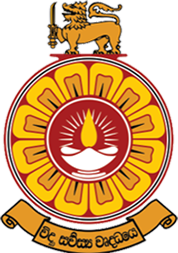I have a thorough academic background and expertise in the field of plant sciences, which stem from my career as a Senior Lecturer in Botany at the Open University of Sri Lanka (OUSL). Plant physiology, cell biology, bioinformatics, and biotechnology are my primary fields of teaching and research. In addition, I have a passion for using innovative assessment techniques in both conventional and tech-assisted modes to measure student learning and reflect on my facilitation of learning.
My teaching philosophy is based on the rationale that a university academic should have an outstanding personality that inspires the young generation. Discipline is the foundation of conduct. He should be a good teacher and researcher on one hand and an exemplary leader on the other. Ideally, such a personality possesses a wealth of knowledge, skills, resources, and talents that have been accrued over a long time. As an academic, I serve as a mentor, coach, or facilitator at different instances of the learning process.
Reflective development is critical for both students and teachers in the learning process. I rely on feedback from students and peers to optimise my role. I pay serious attention to the Practicals and field lessons in the learning process. I believe that the students are the reflection of the teacher’s competency. I work hard to see that my students hold on to my standards at their minimum.
My research policy has focused on addressing macro-level real-world problems, particularly, the issues that affect food security and safety, through biotechnology-based approaches. I also observe a strict policy on publishing research outcomes that are not reliable and convincing. This very aspect of my research policy seems to have portrayed my career records as less attractive, yet I am satisfied as a responsible global citizen. The steady progress with impactful outcomes is more favoured by my conscience.
I have also devoted a fair proportion of my research effort to the learning process and outreach programmes for farmers. Research on teaching and learning was focused on inducing deep learning in students, reducing plagiarism, and constructively aligning the formative assessments towards it. With the insight developed through these research engagements, I usually maintain high standards in academic activities and examinations by integrating innovative methods.
As a leader of the OUSL’s community outreach program, I implemented knowledge empowerment programmes across a range of social strata, including policy-makers, government officials, and subsistence farmers. I acquired substantial knowledge in transforming, translating, curating, and disseminating both technical and non-technical knowledge in various forms with specific purposes to almost all strata of society.
As the Director of International Relations, I have successfully managed domestic and international initiatives, combining strategic insight with practical accomplishments. I have actively contributed to formulating policies and guidelines at both institutional and national levels, ensuring alignment with best practices and strategic goals.
I will extend my maximum potential to uphold the mandate of the university. I focus my capacity to solve the burning issues of mankind regarding food security and safety through multidisciplinary and transdisciplinary approaches. At the same time, I try my best to bring up my children to the level where they can serve humanity far better than their father.


